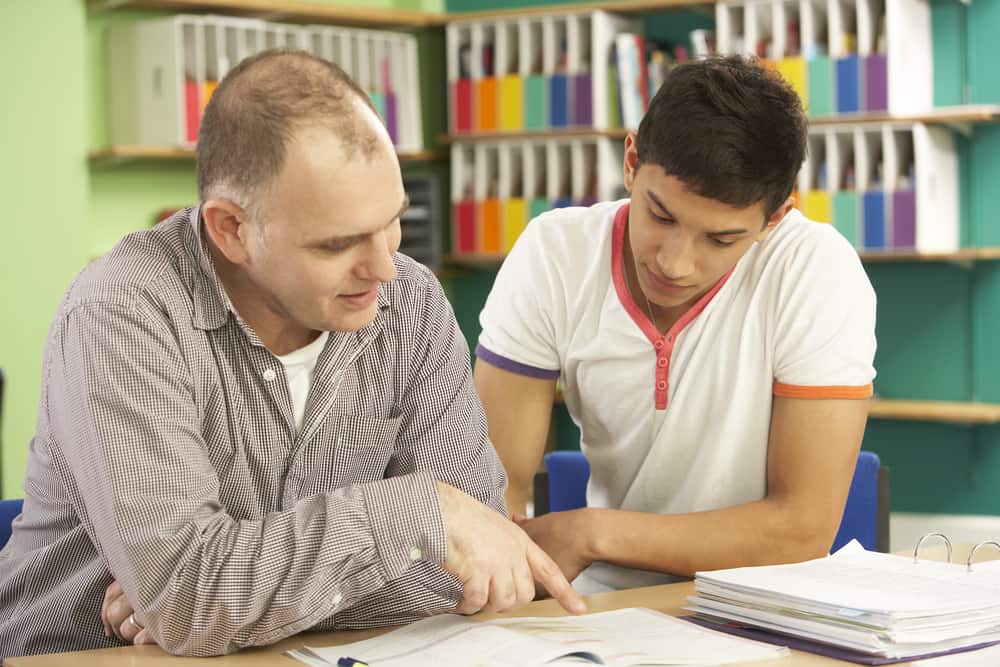
Did you know that self-awareness is as crucial for academic success as it is for personal growth? Often overlooked in the bustling hallways of schools and colleges, the development of self-awareness skills forms the bedrock of both learning and living. Self-awareness shapes how one interacts with new information and adapts to varying learning environments.
As students, we spend a lot of time in books, breaking down ideas and questioning assumptions. But how often do we turn that lens on ourselves?
The importance of self-awareness for students is in how it allows them to understand their strengths, weaknesses, and learning styles, developing personal growth and academic success. By developing self-awareness, students can make smarter decisions, improve social skills, and effectively manage stress, leading to better overall performance and well-being.
So, what exactly is self-awareness, and why is it so important for students? Journey onward for the details.
Key Takeaways
- Self-awareness is the ability to understand and recognize one’s own thoughts, emotions, and behaviors. It forms the foundation of emotional intelligence and is vital for personal growth and development.
- For students, self-awareness is essential as it aids in personal growth, enhances decision-making skills, and strengthens interpersonal relationships. It allows students to comprehend their strengths, weaknesses, emotions, and motivations.
- Benefits of self-awareness for students include:
- Improved decision-making by understanding their emotions, thoughts, and values.
- Enhanced motivation and focus through setting realistic goals.
- Better communication and social skills by understanding their own and others’ emotions.
- Effective management of stress and anxiety by identifying personal stressors.
- Boosted academic performance by understanding individual learning styles and study habits.
- Promoting self-awareness can be achieved through methods like active listening, reflective journaling, mindfulness practices, fostering a positive learning environment, and empowering student decision-making.
- Embracing self-awareness not only makes one a better student but also a wiser individual ready to make a positive impact on the world.
What is self-awareness?
Self-awareness is the ability to understand and recognize one’s own thoughts, emotions, and behaviors. It is the foundation of emotional intelligence and a crucial component of personal growth and development.
Why is it important for students to be self-aware?
For students, self-awareness is especially important as it can help them navigate the challenges of their academic and personal lives.
Students need a sense of self-awareness as it cultivates self-reflection for personal growth, betters decision-making skills, and improves interpersonal relationships. By understanding their strengths, weaknesses, emotions, and motivations, students can make informed choices, set realistic goals, and effectively navigate academic and social challenges.
Let’s expand further on this by listing some of the benefits of self-awareness for students.
Better decision making
Self-awareness allows students to understand their own emotions, thoughts, and values, which can lead to better decision-making. When students are self-aware, they are able to make more informed choices about their academic and personal lives as individuals. They are also able to avoid making impulsive decisions that they may later regret.
Improves motivation and focus
When students learn to be self-aware, they are able to set realistic goals for themselves and understand what areas they need to improve in. This can lead to increased motivation and focus, as students are able to stay on track and avoid procrastination.
Self-awareness can also help students to build stronger relationships with their classmates, teachers, and other important people in their lives. It allows students to understand their own emotions and the emotions of others, which can lead to better socializing skills and connecting with others on a deeper level.
Helps to manage stress and anxiety
Self-awareness also helps students to identify their own stressors and manage their emotions, which can lead to less anxiety and better mental well-being. This also enables them to be better equipped in dealing with them through healthier and more effective coping mechanisms.
Leads to overall better academic performance
Self-awareness can also have a significant impact on overall academic success. It helps students to understand their own learning styles and studying habits, which makes the learning process for them that much more enjoyable and effective. This is because being aware of your own strengths and weaknesses allows you to identify where you are doing well, where you need improvements, as well as what you can do to get better.
Encourages them to set achievable goals
Self-awareness allows students to understand their own strengths and weaknesses, which in turn encourages them to set achievable goals for themselves. This includes setting goals that are realistic and attainable, and also understanding what resources are needed to achieve those goals. By setting achievable goals, students are able to track their progress and measure their success, which can lead to increased motivation and a sense of accomplishment.
Increased Self-esteem

Self-awareness also allows students to understand their own worth and capabilities, which can lead to increased self-esteem. When students are self-aware, they are able to identify their own strengths and accomplishments, which can boost their confidence and self-worth. This increased self-esteem can also lead to better decision-making and improved communication with others.
Improved Time Management
Self-awareness can also help students to manage their time more effectively. By understanding their own habits and tendencies, students are able to identify areas where they tend to procrastinate or waste time. This self-awareness can lead to better time management skills, as students are able to make adjustments to their habits and routines to be more productive and efficient.
How do you promote self-awareness in students?
Promoting self-awareness in students can be done through a variety of methods. Here are a few ways to encourage self-awareness in students:
Encourage active listening and participation
Active listening and participation can be an effective way to promote self-awareness and problem-solving that promotes a sense of independence in students. By encouraging students to actively listen and participate in class, they are able to stay engaged and focused, which can help them to better understand the material being taught. This can also help them to develop their ability to understand and recognize their own emotions, thoughts, and values.
It helps in building better relationships with their classmates, teachers, and other important people in their lives.
Encourage reflective journaling

Reflective journaling allows students to evaluate their own understanding of the material and to identify areas where they need to improve. This can be done through writing about what they have learned, what they still need to learn, and how they can improve.
Reflective journaling can also help students to understand their own emotions and how they affect their behavior, which can be beneficial for managing emotions in a more effective way.
Incorporate mindfulness and meditation practices
Mindfulness and meditation practices can also be effective in promoting self-awareness in students. These practices can help students to focus on the present moment and to become more aware of their thoughts and emotions. This can be beneficial for managing stress and anxiety, and help them cultivate healthy habits in dealing with them.
Foster a positive learning environment.
Creating a positive and supportive learning environment includes providing a safe and comfortable space for students to express themselves, encouraging open communication, and fostering a sense of community.
When students feel supported and valued, they are more likely to engage in other self-awareness activities like journaling and practicing mindfulness.
Empower student decision-making.

By giving students autonomy, they are encouraged to take ownership of their learning and to understand the consequences of their actions. This can help students to understand their own values and beliefs and to make more informed decisions.
Additionally, giving students the opportunity to make decisions can help to develop their critical thinking skills, which can be beneficial for their academic and personal lives.
Encourage them to set goals and work towards them.
Encouraging students to set goals and work towards them while also setting healthy boundaries with others is an important aspect of promoting self-awareness. By setting goals, students can understand their own strengths and weaknesses, which in turn can help them to set realistic and attainable objectives for themselves.
This can also help them to stay motivated and focused, and to track their progress, and cultivate a healthy perspective on true and meaningful growth, which is slow. Educators can guide and support students in setting goals and creating a plan to achieve them, and also provide feedback and help them to adjust their goals as needed.
Help them to learn from mistakes and understand the value of making them.
Another important aspect of promoting self-awareness is helping students to learn from their mistakes and to understand the value of making them. When students make mistakes, they are given the opportunity to reflect on their actions, understand what went wrong, and make adjustments in order to improve.
This can be a valuable learning experience that helps them to become more self-aware, and to understand the importance of taking responsibility for their actions. Educators can encourage this type of self-reflection by providing constructive feedback, and by creating an environment where it is safe for students to admit their mistakes and learn from them.
Hold regular one-on-one meetings

Holding regular one-on-one meetings with students can be an effective way to promote self-awareness. These meetings provide an opportunity for educators to check in with students, understand their individual needs and concerns, and provide support and guidance.
It also allows students to share their thoughts and feelings, reflect on their progress, and discuss any challenges or obstacles they may be facing. This can help students to feel heard and understood, and further help them to become more self-aware.
Conclusion
Reflecting on the role of self-awareness in a student’s life leads us to an intriguing question: What if every student could view their educational path through the lens of emotional learning and identify their strengths with clarity? This perspective shift, akin to donning a new pair of glasses, might just be the key to unlocking a world where academic pressures are balanced with personal insight. As we recognize the value of a growth mindset, let’s ponder on how integrating self-awareness into education can redefine the boundaries of learning and living for students.
Standing on the edge of the future with information and skills, it’s important to remember that the most important thing we can do is learn about ourselves. The path of education extends far beyond conquering the outside world; it’s also about finding out more about yourself.
After all, the importance of self-awareness for students lies in how it enables them to make better decisions, stay motivated, communicate effectively, manage stress, and ultimately perform better academically. The ability to understand and recognize one’s own emotions, thoughts, and values is the foundation of personal growth and development and plays a key role in shaping one’s personal and professional life.
Because when we know what we’re good at, what we’re not so good at, and what we’re passionate about, we don’t just become better students; we become wiser people who are ready to leave a mark on the world.
FAQs
Q: What strategies can educators use to teach self-awareness to students?
A: Educators can teach self-awareness to students by incorporating activities that promote self-reflection, emotional regulation, understanding of personal strengths and weaknesses, and fostering a safe environment for open communication.
A: Self-awareness is a fundamental component of social emotional learning as it enables students to understand and manage their emotions, develop empathy, and maintain positive relationships, which are essential skills for their social and emotional development.
Q: What are some ways to help students become self-aware?
A: Educators and parents can help students become self-aware by encouraging self-reflection, providing opportunities for expressing emotions, and promoting open discussions about their strengths and areas for growth.
Q: What types of self-awareness are important for students to develop?
A: It is important for students to develop self-awareness in various aspects, including emotional awareness, self-perception, recognizing their strengths and weaknesses, understanding their emotions, and being aware of how their actions affect others.
Q: Why are emotional regulation skills important for students’ self-awareness?
A: Emotional regulation skills are important for students’ self-awareness as they enable them to recognize, understand, and manage their emotions effectively, which is essential for their overall well-being and social interactions.
Q: How can self-awareness contribute to students’ self-management?
A: Self-awareness contributes to students’ self-management by helping them understand their emotions and reactions, which allows them to make conscious decisions, set goals, and develop strategies to regulate their behavior and responses.
A: The essential competencies of social emotional learning linked to self-awareness include self-perception, emotional self-regulation, social awareness, relationship skills, and responsible decision-making, all of which are crucial for students’ overall development and success.
